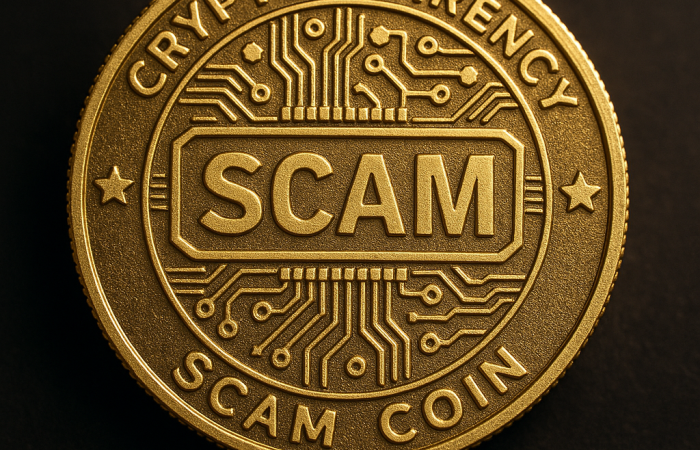When it comes to online scams, there’s no shortage of ways that criminals try to trick people into giving up their personal information or money. One of the latest scams to hit the internet is the Google Prize Phishing Scam, which attempts to dupe people into thinking they’ve won a cash prize from the search giant.
If you receive an email or see an online ad claiming that you’ve won a cash prize from Google, beware! This is a scam that’s currently making the rounds, and it’s important to be aware of it so you don’t fall victim to it. The email or ad claims that you’ve won a cash prize of $500,000 or more, and all you need to do to claim it is click on a link and provide some personal information.
But, of course, there’s no such thing as a free lunch, and if you take the bait and click on the link, you’ll be taken to a fake website that’s designed to look like the real Google homepage. Once you’re on the fake website, you’ll be asked to provide personal information such as your name, social security number, etc,.
Of course, all the information entered by the end user will be compromised and nothing good comes out of it. So, you need to be aware of the way the threat works or else, you might have to face severe consequences.

Google Prize Scam Explained
Google Prize Scam is a type of phishing scam that attempts to trick victims into giving their personal information to criminals. The scam typically involves an email or pop-up message that claims the recipient has won a large sum of money from Google.
The message will often contain a link that directs the victim to a fake website that looks like the real Google homepage. Usually, the website will then ask the victim to provide their personal information, such as their name, address, and credit card number. Scammers will then use this information to commit identity theft or other financial crimes.
How does Google Prize Scam cause you harm?
This type of phishing attacks will lead to identity theft and financial fraud sooner or later. While the criminals have tons of options avaialble, the end user will have to be aware of the risks and keep themselves updated. After all, we cannot underestimate identity theft and other associated risks, right?
Identity theft is a serious problem that can have a devastating impact on victims. It can result in financial losses, damage to your credit rating, and even legal problems. In some cases, it can also lead to emotional distress.
The best way to protect yourself from identity theft is to be aware of the risks and take steps to safeguard your personal information. This includes being careful about who you share your information with and keeping an eye on your credit report. If you suspect that you have been a victim of identity theft, it is important to act quickly to minimize the damage.
Popup Scam and Phishing Links
There has been an increase in the number of popup scams and phishing links in recent months. These scams and links are designed to trick users into providing personal or financial information, or to download malware onto their computers.
Popup scams typically involve a fake notification or alert that appears on a web page. The notification may claim that the user’s computer is infected with a virus, or that their personal information has been compromised. The goal of the scam is to convince the user to click on a link that will take them to a malicious website.
Phishing links are often sent via email or text message. The message may claim to be from a trusted source, such as a bank or government agency. The goal of the phishing attack is to get the user to click on a link that will take them to a fake website that looks identical to the real website. The fake website will then prompt the user to enter personal or financial information.
Both popup scams and phishing links can be very convincing, and users should exercise caution when clicking on any links. If you are unsure about a link, you can hover over it with your mouse to see where it will take you. You can also use a web-based tool like Google Safe Browsing to check if a website is safe to visit.
How to remove fake pop-ups from the browser?
Most fake pop-ups are created by malicious websites that are trying to trick you into clicking on a button or link. These pop-ups can be very difficult to close and can often re-open even if you try to close them. If you are seeing fake pop-ups on your browser, the best thing to do is to close the browser and restart it.
This will usually get rid of the pop-ups. If the pop-ups keep coming back, you may need to reset your browser settings or even uninstall and reinstall the browser.
How to keep your device safe?
There are a few things you can do to keep your device safe from malware and other potential threats. First, make sure that you have a good antivirus program installed on your device. Secondly, be careful about what you download and install on your device. Only download and install programs from trusted sources.
Thirdly, keep your device’s operating system and all programs up to date. Fourth, be aware of phishing scams and other online threats. Do not click on links or attachments from unknown or suspicious sources.
Fifth, use a secure password for your device and make sure to change it regularly. Finally, keep a backup of your important data in case your device is lost or stolen.
Conclusion
Google Prize Scam on the macro scale is just another clever phishing scam that is making a lot of buzz in the online space. While the threat can be deadly, it can be nutralised just by spreading awareness. Once enough people understand the way this hustle works, it will disappear from the web for eternity.



